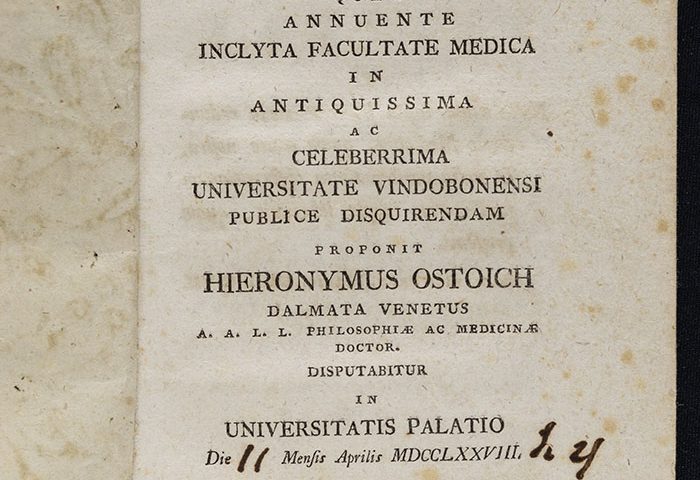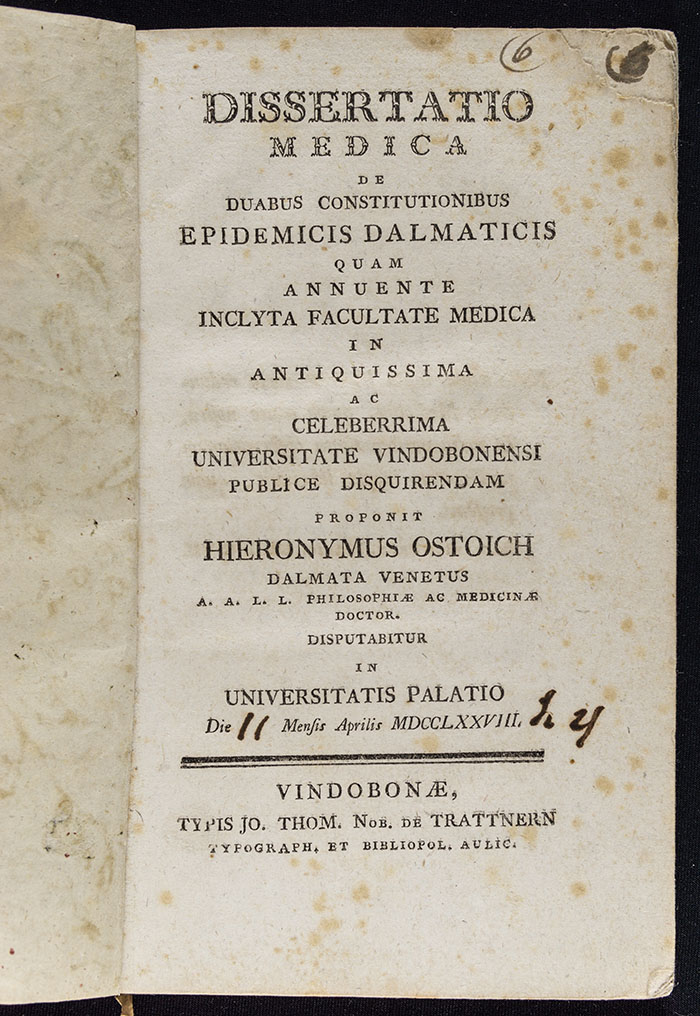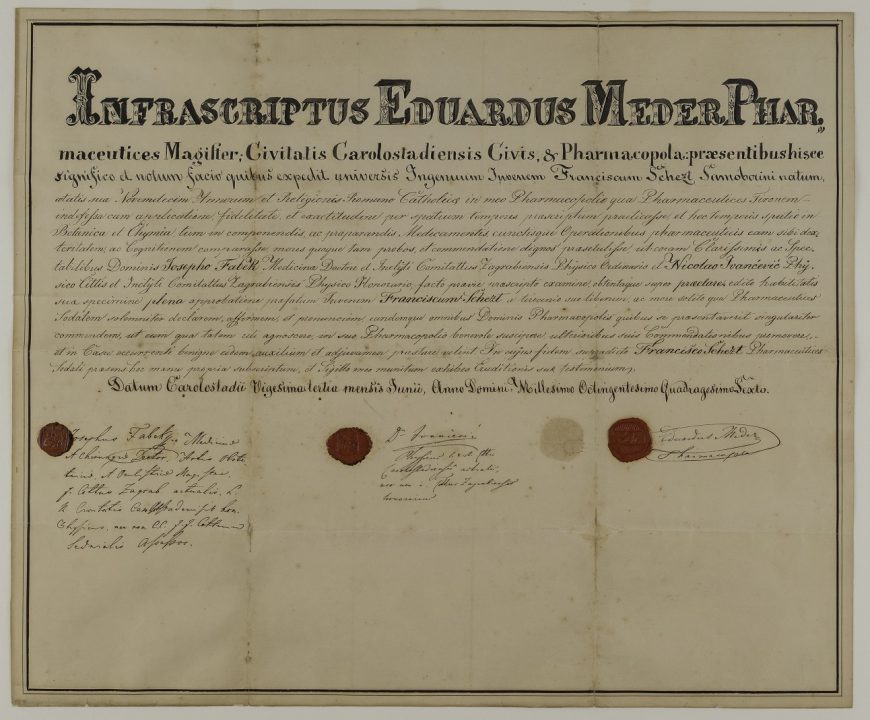Study of medicine at the University of Vienna
(Excerpt from the text: Fatović-Ferenčić, Stella. „A paragon of happiness, dignity and success“: the diplomas of Croatian medical students obtained at foreign universities. // Croatian Doctors’ Diplomas: Selected from the Collection of Medical Diplomas and Charters at the Croatian Museum of Medicine and Pharmacy. Zagreb : School of Medicine of the University in Zagreb, 2017. Catalogue of the exhibition, pp. 5–58)
The University of Vienna is younger than the University of Padua, but until the 17th century there were no records that any Croats studied medicine there. The Viennese university gradually became more popular and more easily available to the less affluent students, but only after Gerard van Swieten’s reform of the university system in 1749. According to the new rules, a diploma was obtained after five years of study, a written dissertation (diploma essay) and a formal public defence of the dissertation. Inaugural dissertations, the equivalent of today’s diploma essays, were for a while a requirement for obtaining the title of doctor of medicine. They were mostly compilations of medical literature of the period, focused on one topic. In the 19th century many universities stopped requiring the written thesis. One of preserved dissertations was written by Jeronim Ostoić, defended in Vienna in 1778, then dissertation by Aleksandar Antonius Pavić, defended in 1827, and dissertation by Nikola Ivančević, defended in 1838. Besides the title of the doctor of medicine, some other medical degrees were also available in Vienna, such as master of surgery, ophthalmology and obstetrics, and doctor of surgery. In 1872 this was abolished and one diploma was introduced for medicine. Near the university in Vienna there was also the army medical school for army doctors, founded by Emperor Joseph II in 1785. The curriculum was the same as the one at the University of Vienna but the school was closed in 1870.
Croatian students in Vienna often joined academic societies, such as a society called Velebit. The president of the society was Fran Gundrum-Oriovčanin, who was at the time a student of medicine there and later became well known doctor of medicine, author of the first Croatian manual of sexual hygiene. After Velebit ceased to exist, a society called Zvonimir started its activity in Vienna at the beginning of 1882.
The Vienna Josephinum also provided a diploma for Josip Zlatarović, who made efforts in the organisation of health care system in Croatia and the establishment of the Zagreb School of Medicine. Among other graduates were: Antun Lobmayer, later assistant to Theodor Billroth, and until 1905 principal of the new State Maternity Hospital and professor at the Midwifery College in Zagreb, Miroslav Čačković, professor of surgery and first dean of the Zagreb School of Medicine (1917 – 1919 and 1924 – 1925), Dragutin Mašek, one of the three founders of the Zagreb School of Medicine, Drago Perović, the first Croatian professor of anatomy, Eduard Miloslavić, the founder of the Department of Forensic Medicine at the University of Zagreb School of Medicine, organiser of public health in the region and the founder of the Dr. Andrija Štampar Institute of Public Health, as well as many others.



